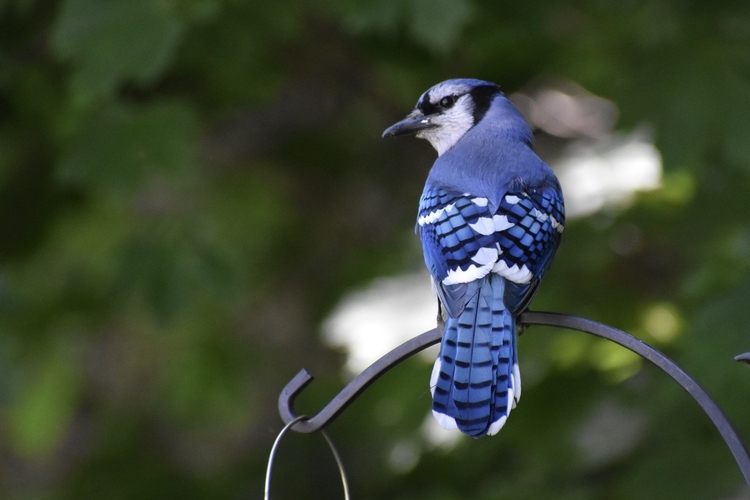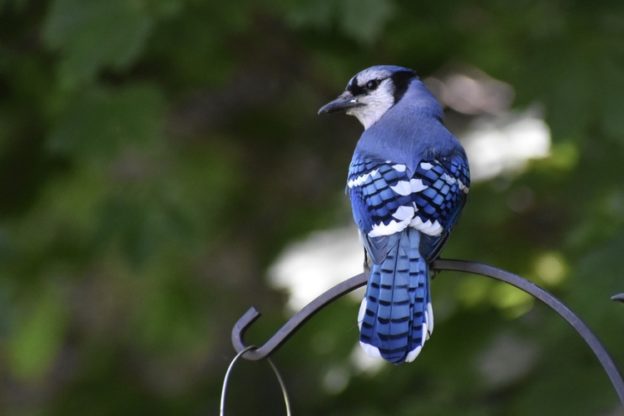Bird feeders are still empty and indoors at Mass Audubon sanctuaries (as they mostly are statewide). We miss seeing our visiting chickadees, nuthatches, blue jays, and woodpeckers at our nature centers and offices!
Keeping feeders down is still the right decision in light of the disease outbreak in the mid-Atlantic and Midwest. So far, the disease has not spread into New England, and there’s no immediate cause for concern at this point—only caution.

Hold tight!
It is possible that nothing will change for the next couple of weeks, and perhaps even the rest of the summer. It’s worth checking back on this blog or on the MassWildlife website later in August for any future updates.
Both MassWildlife and their state agency counterparts in Connecticut and Rhode Island continue to ask that people pause feeding birds statewide.
Luckily, late spring and summer are the seasons when insects, water, wild seeds, and fruits are abundant. These natural foods have sustained birds in the warm season since long before we began feeding them.
More Unknowns than Knowns
The cause of the outbreak is still unknown, and identifying the cause of any new avian disease is a process of elimination. So far, wildlife health experts have confirmed that the disease is not due to West Nile virus, avian flu, conjunctivitis, or agricultural pesticides or herbicides. A hypothetical link to the Brood X cicada emergence in the Mid-Atlantic has also been ruled out.
We also don’t really know if this disease can be passed from bird to bird yet. Some of the affected birds show signs of eye infections—which suggest, but do not confirm, that it’s transmissible.
This disease spread rapidly in its early stages, though the numbers appear to be stabilizing in some states. We do know that birdfeeders and birdbaths have in the past facilitated other outbreaks of disease, like salmonella and conjunctivitis, because they provide shared surfaces where birds congregate densely and frequently.
By temporarily removing your feeders and bird baths, you are reducing the chances that this disease will spread into Massachusetts. Thank you. We can’t wait to get back to feeding birds as soon as it’s prudent, and we’ll be sure to let you know when that is.


